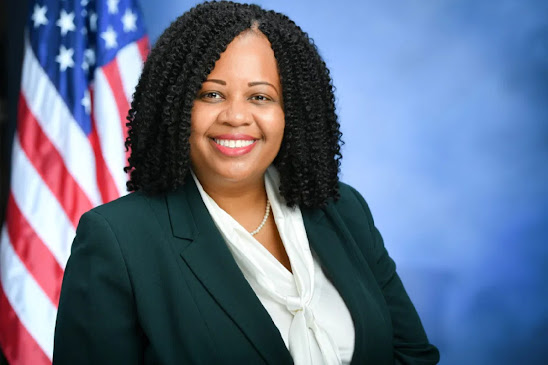Assemblywoman Mathylde Frontus Chooses Brooklyn Over “Anywhere In The World”
 |
On election night last November, as results trickled in, Mathylde Frontus was trailing her opponent in the New York State Assembly District 46 race. Many constituents and supporters were immediately concerned.
“I had people calling me, but I told them I wasn’t worried about it because she’s a winner, no matter the result,” said supporter Porez Luxama, executive director of the Life of Hope Center in Brooklyn and a Frontus collaborator.
Sixteen days and 9,000 additional absentee ballots later, the news spread that
“I love that she isn’t a career politician who only wants to advance their own political alliances, allegiances, and ideologies,” said Moyo Soyemi, a lawyer who participated in an educational program Frontus founded. “She is really seeking to better the community.”
Growing up in her Coney Island household, Frontus, the first of four children, was fairly sheltered. Her mother worked as a certified nursing assistant, while her father drove a livery cab and was an administrator at a Flatbush yeshiva
Despite the sound of gunshots ringing in the background at times, as she got older, Frontus volunteered at local soup kitchens and began performing some of the community service work that would later define her career.
In her youth,
“Politics was a big part of the relationship between my father and I, and we followed races and candidates,” said Frontus. “He would tell me all the time, ‘You’ll be good for politics one day.’”
Yet, despite the encouragement early on and her extracurricular activities,
“I went to her office and saw her diplomas and I realized that she could be anywhere in the world, doing anything,” said Abiola Soyemi, a physician who resides in Coney Island. “She’s still there, serving in the community, and that was just very inspiring to me.”
Connecting people to resources
In 2004, Frontus founded Urban Neighborhood Services from 2004, which she ran until 2016. The non-profit organization provides resources on tenants’ rights, financial literacy, health education and college prep. Through her UNS work, Frontus became respected and trusted by Coney Island residents. She made the decision then to run for office upon their urging.
“I’m a social worker by training, so I’m always connecting the dots and connecting people to resources,” said Frontus, who resides in Coney Island with her partner.
Now, as Frontus prepares to commence her second term in the Assembly, numerous issues require attention. The top priority is to keep the people of her district safe from COVID. She has organized a team of volunteers to provide hot meals and items such as paper towels to the elderly, disabled and neediest people in her district.
Other issues that she plans to focus on include racial equality, gender equity, relief for tenants and small businesses, and increasing the number of social services that help people in need.
Luxama said that Frontus faces a particular challenge in District 46, as neighborhoods like Dyker Heights have a more conservative population than others in Brooklyn.
“She has more challenges compared to other Haitian officials in central Brooklyn, especially considering she has a Trump-oriented, Republican neighborhood like Dyker Heights,” said Luxama. “She knows the needs of the community by bringing in food and PPE, as well as getting funding for small businesses.”
A new plan for a new year
Frontus said she was ready to accept the result of the election back in November. But going into the Assembly session, Frontus plans to announce a new six-point mobility plan. It will focus on bringing additional resources into the community for entrepreneurship, homeownership, job training, investing and money management for the district.
The upcoming termination of the moratorium on evictions throughout the city will also command a strong amount of her attention.
“A lot of people are going to be suffering when the moratorium ends in January, and that’s what keeps me up at night,” Frontus said. “We can’t leave them hanging high and dry. It’s not right.”
Frontus also hopes to see a more diverse New York City Council makeup in New York City after the race next November, specifically more immigrants, women, and people of color being elected to office. She said she especially would like to see more people who are energized and have a heart for their community.
Frontus’ consistent outreach and steadfast commitment to people, particularly in times of crisis, have many Haitian-Americans in her district wishing to see her accede to a higher political position.
“People were paralyzed after COVID, but during the peak time when everybody was home and not sure what to do, she was the one out in the street,” Luxama said. “They are very pleased and happy to have her in that position, and we also hope to see her as the next speaker of the assembly.”
This article was originally published in The Haitian Times.


Comments